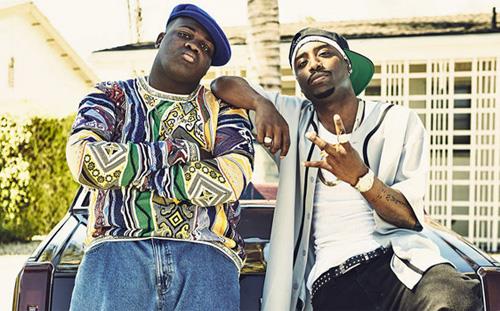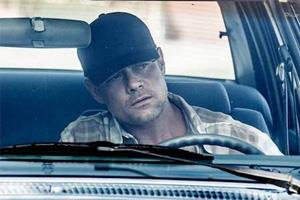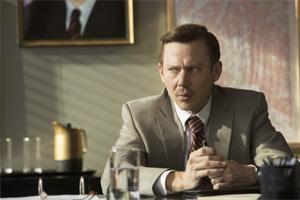
Whether you think we ever need to wade back into the murders of rappers Tupac Shakur and Biggie Smalls, USA’s new Unsolved will take you there anyway and make you not want to leave.
Unsolved, a 10-part series that premieres Tuesday at 10 p.m. ET, does what the best shows in this suddenly hot genre have learned to do: It sets up a series of tense, engaging human dramas in which the crime itself constantly moves between background and foreground.
Creators Anthony Hemingway and Mark Taylor roll out two separate parallel storylines, a decade apart. One is the initial police investigation into the 1997 murder of Biggie, the other a reopened investigation a decade later when it had become a cold case.
 They share common threads, including the sense that if they can find out who shot Biggie (Wavyy Jonez, top), that could lead them to Tupac’s (Marcc Rose, top) killer as well. This hope is frequently derailed by the frustrating and unsurprising fact that even though Biggie was shot to death in a car on a main street, nobody seems to have seen anything or know anything about it.
They share common threads, including the sense that if they can find out who shot Biggie (Wavyy Jonez, top), that could lead them to Tupac’s (Marcc Rose, top) killer as well. This hope is frequently derailed by the frustrating and unsurprising fact that even though Biggie was shot to death in a car on a main street, nobody seems to have seen anything or know anything about it.
Josh Duhamel (above) plays Greg Kading, the detective who catches the cold case. Kading’s prominence here isn’t an accident, since the real-life Kading wrote a book based on his experiences in the case. That book provides much of the material from which Unsolved in adapted.
The reason Kading has been put on the case, and strongly urged to finally solve it, is that Biggie’s mother Voletta Wallace (Aisha Hinds) has sued the LAPD for $400 million, claiming that’s what his murder cost him and his family in potential lifetime earnings.
Voletta Wallace isn’t just throwing a Hail Mary here. She’s claiming the LAPD was complicit in a cover-up, based on what she was told by Los Angeles Detective Russell Poole (Jimmi Simpson, below), who worked the original case.
The other storyline here follows Poole and that original investigation, which Poole worked with his partner Fred Miller (Jamie McShane).
 They aren’t the suspected perps in the cover-up. That allegedly happens higher up, amid suggestions that some cops and officials had arrangements with music industry and gang-affiliated people like the notorious promoter Shug Knight.
They aren’t the suspected perps in the cover-up. That allegedly happens higher up, amid suggestions that some cops and officials had arrangements with music industry and gang-affiliated people like the notorious promoter Shug Knight.
Hints about those kinds of shadowy machinations emerge slowly, though Unsolved itself moves at a nice, fast clip. It just has to spend some time upfront on setup, for the benefit of viewers who didn’t follow the rap music world in the 1990s and therefore don't understand the importance of Biggie and Tupac.
Unsolved shows the volatility and violence in that world, without sensationalizing it. It notes the intersection of rap and hip-hop culture with street gangs, a sometimes fragile situation reflected in the fact that Tupac branded himself with the phrase “Thug Life.”
At the same time, it’s also true Tupac was becoming less of a rapper and more of a businessman, branching out into movies and production.
While word on the streets has long had Biggie being shot in retaliation for Tupac’s death a few months earlier, Unsolved paints Tupac and Biggie as good friends when they met, though some sources say they later fell out. One early scene here has Tupac, Biggie, and their posses breaking out a gym bag full of Tupac’s unloaded guns and running out into the yard to have a pretend shootout.
Unsolved scores no points for subtlety at moments like that, though the scene does make the point that while these guys had both become rich and famous in their early 20s, in some ways they were still kids.
It’s not a spoiler alert to point out that the real-life cops have never filed charges in either death. Unsolved strongly hints at a couple of theories, while raising uncomfortable questions about how the system worked in these admittedly difficult cases.
Unsolved, accordingly, will keep your attention. As they say in the music biz, it has some killer hooks.